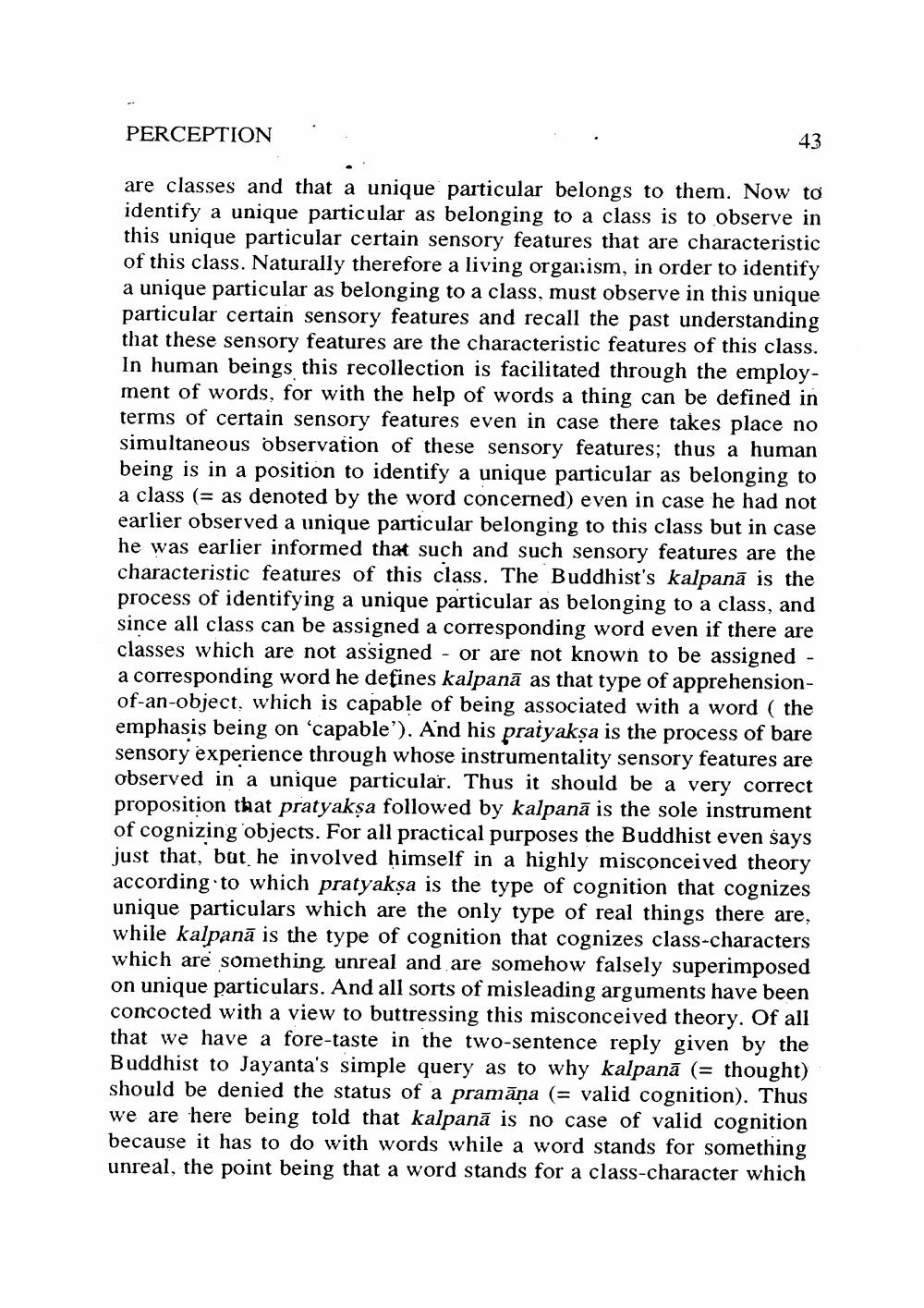________________
PERCEPTION
.
.
43
are classes and that a unique particular belongs to them. Now to identify a unique particular as belonging to a class is to observe in this unique particular certain sensory features that are characteristic of this class. Naturally therefore a living organism, in order to identify a unique particular as belonging to a class, must observe in this unique particular certain sensory features and recall the past understanding that these sensory features are the characteristic features of this class. In human beings this recollection is facilitated through the employment of words, for with the help of words a thing can be defined in terms of certain sensory features even in case there takes place no simultaneous observation of these sensory features; thus a human being is in a position to identify a unique particular as belonging to a class (= as denoted by the word concerned) even in case he had not earlier observed a unique particular belonging to this class but in case he was earlier informed that such and such sensory features are the characteristic features of this class. The Buddhist's kalpanā is the process of identifying a unique particular as belonging to a class, and since all class can be assigned a corresponding word even if there are classes which are not assigned - or are not known to be assigned - a corresponding word he defines kalpanā as that type of apprehensionof-an-object, which is capable of being associated with a word ( the emphasis being on 'capable'). And his pratyakṣa is the process of bare sensory experience through whose instrumentality sensory features are observed in a unique particular. Thus it should be a very correct proposition that pratyaksa followed by kalpanā is the sole instrument of cognizing objects. For all practical purposes the Buddhist even says just that, but he involved himself in a highly misconceived theory according to which pratyakṣa is the type of cognition that cognizes unique particulars which are the only type of real things there are, while kalpanā is the type of cognition that cognizes class-characters which are something unreal and are somehow falsely superimposed on unique particulars. And all sorts of misleading arguments have been concocted with a view to buttressing this misconceived theory. Of all that we have a fore-taste in the two-sentence reply given by the Buddhist to Jayanta's simple query as to why kalpanā (= thought) should be denied the status of a pramāna (= valid cognition). Thus we are here being told that kalpanā is no case of valid cognition because it has to do with words while a word stands for something unreal, the point being that a word stands for a class-character which




